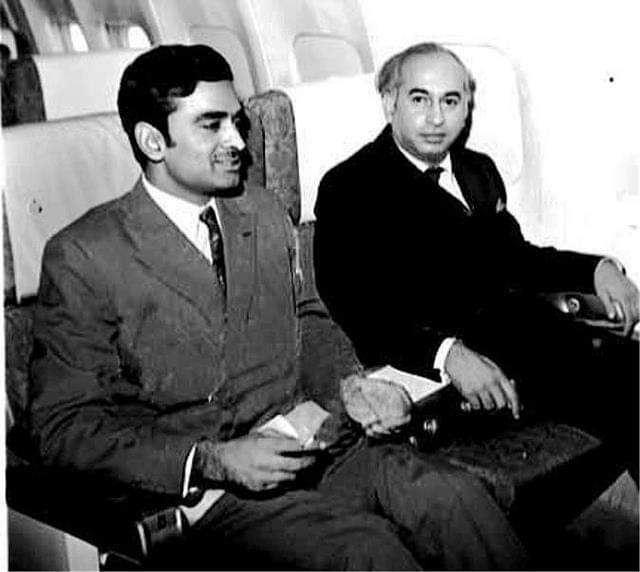
Manzoor Masih, Rehmat Masih, and Salamat Masih were #arrested in May 1993. Maulvi Fazl-e-Haq had accused Salamat Masih, who was only thirteen, of writing #blasphemous slogans on the wall of the local #mosque.
But testimony emerged that Salamat Masih could not read or (1/16)
But testimony emerged that Salamat Masih could not read or (1/16)

write. Still, he and his two older companions were charged under section #295_C of the Pakistan #Penal Code, which provided a mandatory #death penalty for anyone defiling the name of the Prophet Muhammad. Human rights campaigners took up the case and protested against (2/16) 

the three Christians’ imprisonment. It was pointed out that they could not be fairly tried in #Gujranwala where the safety of the prisoners could not be guaranteed. SSP held frequent demonstrations in and outside the courtroom, demanding the execution of the three (3/16)
Christians accused.
The case of the three Christian prisoners was transferred to #Lahore and the child Salamat Masih was released on bail in November 1993. Manzoor and Rehmat Masih got bail in January 1994, although the charges remained against them. On April 5, 1994, (4/16)
The case of the three Christian prisoners was transferred to #Lahore and the child Salamat Masih was released on bail in November 1993. Manzoor and Rehmat Masih got bail in January 1994, although the charges remained against them. On April 5, 1994, (4/16)
in Lahore, Manzoor Masih was shot dead and his co-accused, Rehmat Masih and Salamat Masih, were seriously injured. Their assailants were three gunmen identified by eyewitnesses as SSP members. The attack took place near the Lahore High #Court—and about two hundred (5/16)
meters away from a police station—just after the #Christians had left a court hearing. From around this time, attacks against Pakistan’s religious minorities would no longer be solely characterized by the mob violence of the variety witnessed throughout Pakistan’s (6/16)
history. It would be now backed by well-trained militias and terrorist groups that could carry out massacres with modern weaponry and sophisticated explosives. (Manzoor Masih was shot dead during the hearings, and the High Court #Judge , Arif Iqbal Bhatti, who acquitted (7/16)
them, was also later shot dead. Salamat Masih and Rehmat Masih had to flee the country.-Beena Sarwar)
Religion-motivated mob violence would continue, however. Just a few days after the shooting of the #Christians in Lahore, on April 21, 1994, a #Muslim practitioner of (8/16)
Religion-motivated mob violence would continue, however. Just a few days after the shooting of the #Christians in Lahore, on April 21, 1994, a #Muslim practitioner of (8/16)
indigenous medicine was stoned to death by a mob in #Gujranwala , which believed him to have burned some pages of the Quran. They tried to set his body on fire while he was probably still alive and dragged his dead body through the streets. According to #Amnesty (9/16)
International, the government of Pakistan did not publicly condemn such acts and failed to take all possible measures to ensure the safety of members of religious minorities. “None of the major political parties have publicly condemned the incidents,” it noted.
The (10/16)
The (10/16)
extremists did not stop at killing Manzoor Masih. One of the judges in the trial of Manzoor Masih and his family members, Arif Iqbal Bhatti, was later murdered in his chambers by an extremist assassin simply because he acquitted the accused Christians on the basis of (11/16)
weak evidence. The murder of a judge who dared to rule in support of members of a minority community—and thus against the militants’ diktat—served as a warning to officials that they should not sympathize with non-Muslims, even within the confines of laws that were (12/16)
already stacked against minority communities. Once militants had accused someone of blasphemy, trial before judges would now be a mere formality; a guilty verdict was a foregone conclusion. The accusation itself was tantamount to a death sentence, with the militants, (13/16)
instead of the state, acting as the executioner.
During a debate in the National Assembly following the murder of Manzoor Masih, retired Supreme Court Judge #Dorab #Patel, chairman of the nongovernmental Human Rights Commission of Pakistan, called for amendments to the (14/16)
During a debate in the National Assembly following the murder of Manzoor Masih, retired Supreme Court Judge #Dorab #Patel, chairman of the nongovernmental Human Rights Commission of Pakistan, called for amendments to the (14/16)

#blasphemy law as it contributed to religious fanaticism. He was interrupted by a Sipah-e-Sahaba #member of Parliament, Azam Tariq, who shouted that “anyone who commits blasphemy will meet the fate of Manzoor Masih.”
The exchange between Tariq and Patel, a Parsi (15/16)
The exchange between Tariq and Patel, a Parsi (15/16)
(Zoroastrian), was cited in a July 1994 report titled “Pakistan: Use and Abuse of the Blasphemy Laws,” by Amnesty International, which also compared the Bhutto and Sharif governments and their attitudes toward minorities and blasphemy. (16/16) 

• • •
Missing some Tweet in this thread? You can try to
force a refresh














